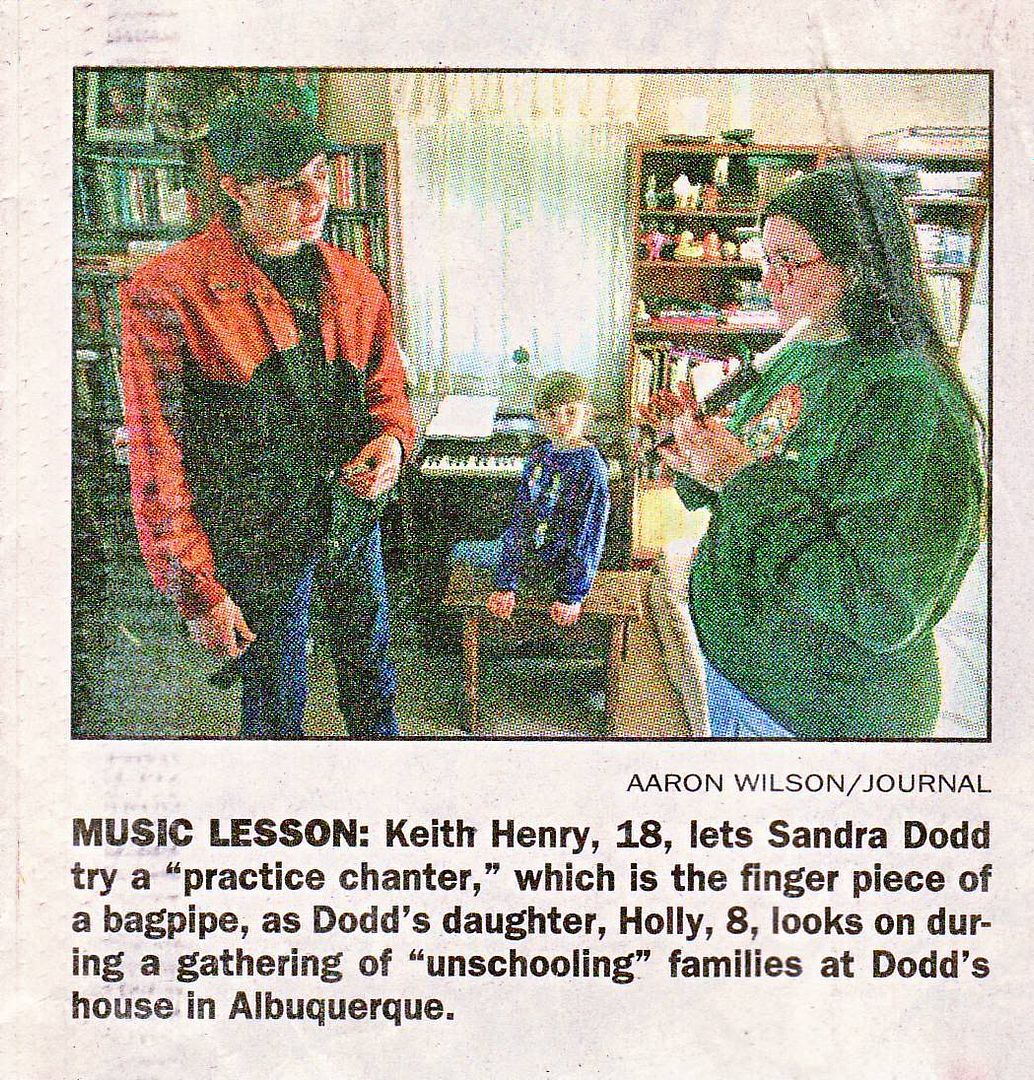Tough school year? Check home schooling
By Cynthia Whitfield
For The Register-Guard
Published: June 18, 2008 12:00AM
As the school year ends, many parents are thinking ahead to September and a new school year. If all has gone well, most parents expect next year will also work out.
However, parents of children who have struggled through the year may find themselves considering alternatives to public school. One of those alternatives is home schooling.
Summer is the perfect time to explore home schooling. This year, more than 1,600 Lane County children registered as home-schoolers. This number doesn’t include students who learn at home through online academies or correspondence courses, or students whose parents fail to register with the state. Conservative estimates put the total number of home-schoolers nationwide at more than 2 million.
Most parents feel a bit frightened when they first consider home schooling. At a time when a good education is deemed increasingly important, parents want to know they’re making the right choice for their kids. Fortunately, a look at the evolution of home schooling helps potential home-schoolers and the wider community understand the rationale for this growing movement.
This is listed as an opinion piece. It's a very clean history of homeschooling. It's level, and encouraging, with no negativity at all. For me, these two paragraphs were the most striking:
Blacks account for the fastest growing segment of home-schoolers today. Interestingly, while public schools worry about the achievement gap between blacks and whites, home-schooled black children score at the 87th percentile — just as high as home-schooled white children, and significantly higher than the average public school student.
Although parents choose home schooling for a variety of reasons, most home-schoolers believe children learn best at home in a loving environment where parents take into account each child’s strengths and weaknesses, likes and dislikes, learning styles and emotional makeup when designing a program of study. Children learn at their own rate, and they don’t have to wait for the rest of the class to catch up or feel rushed if they need more time on a topic.
This would be a good article to share with friends or relatives who could use simple, soothing information about unschooling.
 "My husband and I homeschooled our two children, now both in their twenties. I served on the boards of the Massachusetts Home Learning Association (mhla.org) and the National Home Education Network (nhen.org). Before homeschooling our children, I was a classroom teacher in both public and private schools. Since homeschooling, I have become even more interested in the process of learning and the role of schools in our society. The papers listed on this website are the result of two my research projects."
"My husband and I homeschooled our two children, now both in their twenties. I served on the boards of the Massachusetts Home Learning Association (mhla.org) and the National Home Education Network (nhen.org). Before homeschooling our children, I was a classroom teacher in both public and private schools. Since homeschooling, I have become even more interested in the process of learning and the role of schools in our society. The papers listed on this website are the result of two my research projects."